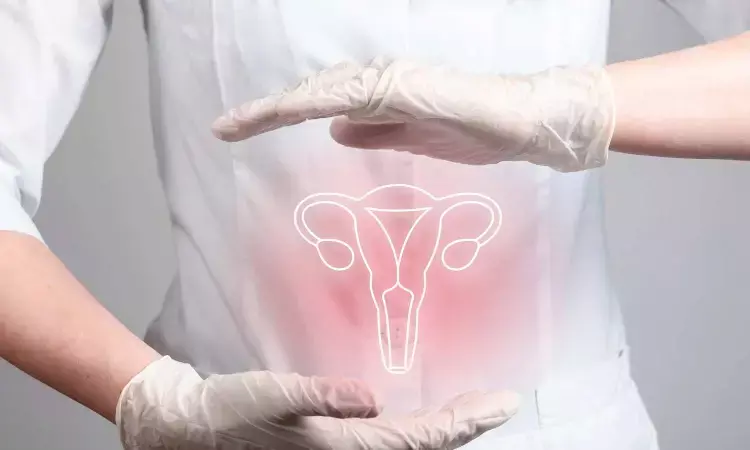- Home
- Medical news & Guidelines
- Anesthesiology
- Cardiology and CTVS
- Critical Care
- Dentistry
- Dermatology
- Diabetes and Endocrinology
- ENT
- Gastroenterology
- Medicine
- Nephrology
- Neurology
- Obstretics-Gynaecology
- Oncology
- Ophthalmology
- Orthopaedics
- Pediatrics-Neonatology
- Psychiatry
- Pulmonology
- Radiology
- Surgery
- Urology
- Laboratory Medicine
- Diet
- Nursing
- Paramedical
- Physiotherapy
- Health news
- Fact Check
- Bone Health Fact Check
- Brain Health Fact Check
- Cancer Related Fact Check
- Child Care Fact Check
- Dental and oral health fact check
- Diabetes and metabolic health fact check
- Diet and Nutrition Fact Check
- Eye and ENT Care Fact Check
- Fitness fact check
- Gut health fact check
- Heart health fact check
- Kidney health fact check
- Medical education fact check
- Men's health fact check
- Respiratory fact check
- Skin and hair care fact check
- Vaccine and Immunization fact check
- Women's health fact check
- AYUSH
- State News
- Andaman and Nicobar Islands
- Andhra Pradesh
- Arunachal Pradesh
- Assam
- Bihar
- Chandigarh
- Chattisgarh
- Dadra and Nagar Haveli
- Daman and Diu
- Delhi
- Goa
- Gujarat
- Haryana
- Himachal Pradesh
- Jammu & Kashmir
- Jharkhand
- Karnataka
- Kerala
- Ladakh
- Lakshadweep
- Madhya Pradesh
- Maharashtra
- Manipur
- Meghalaya
- Mizoram
- Nagaland
- Odisha
- Puducherry
- Punjab
- Rajasthan
- Sikkim
- Tamil Nadu
- Telangana
- Tripura
- Uttar Pradesh
- Uttrakhand
- West Bengal
- Medical Education
- Industry
Presurgical Dysregulation of plasma proteins may predict persistent pelvic pain after surgery for endometriosis among adolescents: Study

Researchers in a recent study have demonstrated that specific plasma proteins can actually forecast the persistence of pelvic pain after laparoscopic surgery in young adults and adolescents with endometriosis. The finding reflects how this is related to personalized treatment approaches and potential biological pathways involved in endometriosis-associated pain. This discovery was from a prospective analysis using a multiplex aptamer-based proteomics biomarker discovery platform that was published in the American Journal of Obstetrics and Gynecology by Naoko Sasamoto and colleagues.
The objective of this study was to identify, in plasma proteins, potential markers for the persistence of pelvic pain after laparoscopic surgery in young patients with endometriosis using a state-of-the-art proteomics platform.
Prospective cohort study of 142 women with laparoscopically confirmed endometriosis enrolled in the prospective cohort study Women's Health Study: From Adolescence to Adulthood between 2012 and through the end of 2018 with prospectively collected and banked biological specimens and patient data using harmonized tools. They measured 1,305 plasma protein levels of banked pre surgical blood from women scheduled for laparoscopic ablation or excision of endometriosis. Worsening or persistent postsurgical pelvic pain was defined by new or stable pain severity, frequency, or life interference of dysmenorrhea or acyclic pelvic pain at one year post surgery.
In this research, individuals of 20 years and above with a new diagnosis in proteinuria in 2009 were recruited. Patients who had previous cranial nerve palsy, incomplete data, diagnosed with a new CNP, or who died within a year after examination were excluded. The subjects in this research were divided into six groups based on urine dipstick test results. In the study, Cox proportional hazard regression analysis was applied to identify the association between proteinuria and ocular motor CNP.
• The median age at blood draw was 17 years (IQR, 15-19), and 90% were White.
• All had superficial peritoneal lesions treated by excision or ablation. One year post surgery, 54% of participants experienced worsening or persistent pelvic pain, while 46% reported improvement.
• Researchers identified 83 proteins associated with worsening or persistent pain (nominal P<.05).
• Higher presurgical plasma levels of CD63 antigen (OR, 2.98; 95% CI, 1.44-6.19) and CD47 (OR, 2.68; 95% CI, 1.28-5.61) were linked to persiste
• Lower levels of Sonic Hedgehog protein (OR, 0.55; 95% CI, 0.36-0.84) were observed in those with persistent pain.
• Pathways related to cell migration were up-regulated, while angiogenesis pathways were down-regulated in participants with worsening pain
• An increase in Sonic Hedgehog protein levels from pre surgery to postsurgery was associated with a 4-fold increase in the risk of persistent pain (OR [quartile 4 vs 1], 3.86; 95% CI, 1.04-14.33).
The research findings indicate that plasma proteins can be investigated as biomarkers predicting surgical outcomes in patients with endometriosis. It would actually stratify risk and individualised treatments, hence pain management and improved quality of life to the young women suffering from the condition.
An aptamer-based proteomics platform identified plasma proteins and pathways related to persistent pelvic pain following surgical management of endometriosis. Such biomarkers may offer an assist in risk stratification and particularised treatment strategies for adolescents and young adults with endometriosis.
Reference:
Sasamoto, N., Ngo, L., Vitonis, A. F., Dillon, S. T., Prasad, P., Laufer, M. R., As-Sanie, S., Schrepf, A., Missmer, S. A., Libermann, T. A., & Terry, K. L. (2024). Plasma proteins and persistent postsurgical pelvic pain among adolescents and young adults with endometriosis. American Journal of Obstetrics and Gynecology, 231(2), 240.e1-240.e11. https://doi.org/10.1016/j.ajog.2024.03.005
Dr Riya Dave has completed dentistry from Gujarat University in 2022. She is a dentist and accomplished medical and scientific writer known for her commitment to bridging the gap between clinical expertise and accessible healthcare information. She has been actively involved in writing blogs related to health and wellness.
Dr Kamal Kant Kohli-MBBS, DTCD- a chest specialist with more than 30 years of practice and a flair for writing clinical articles, Dr Kamal Kant Kohli joined Medical Dialogues as a Chief Editor of Medical News. Besides writing articles, as an editor, he proofreads and verifies all the medical content published on Medical Dialogues including those coming from journals, studies,medical conferences,guidelines etc. Email: drkohli@medicaldialogues.in. Contact no. 011-43720751


